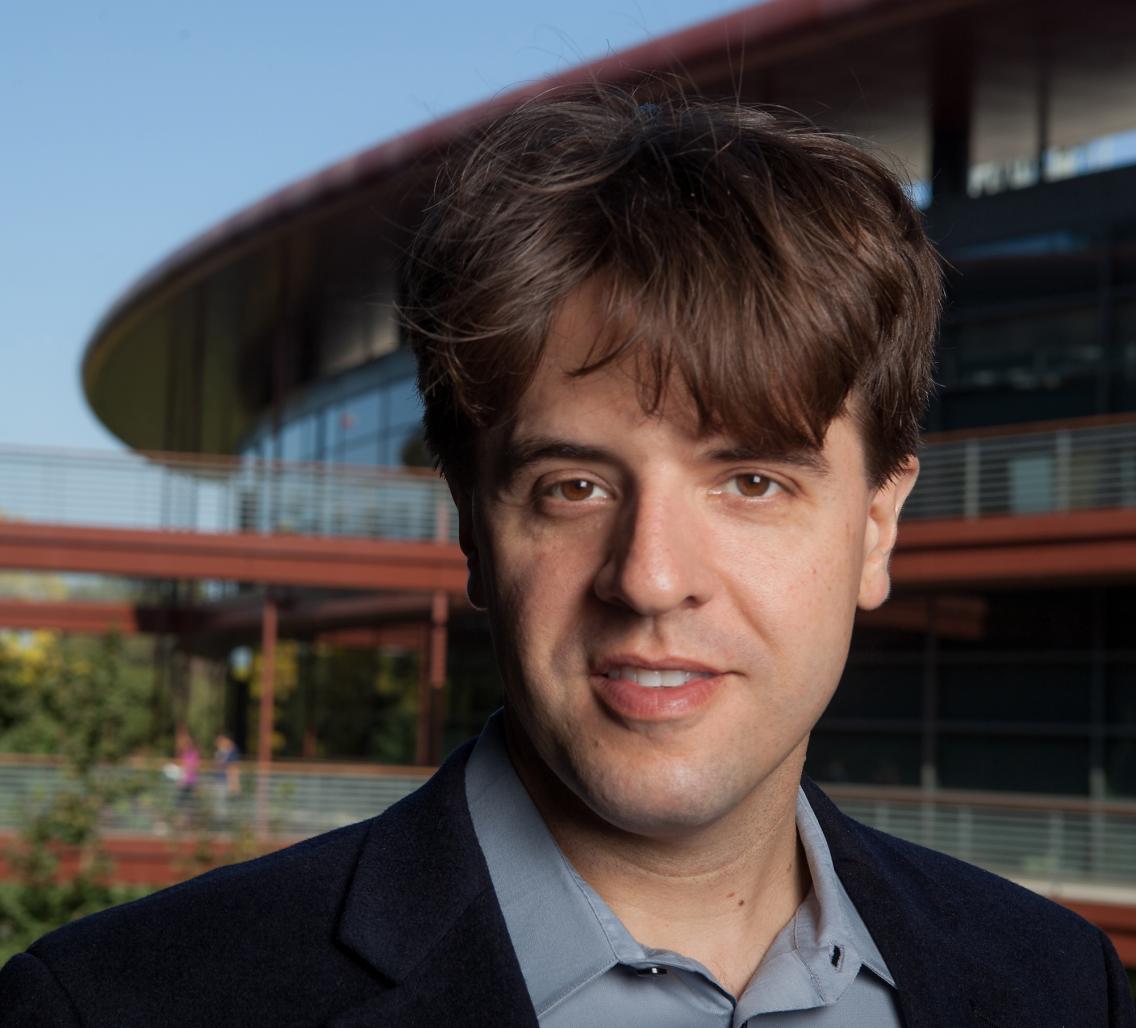Event Details:

Karl Deisseroth, MD, PhD
D.H. Chen Professor of Bioengineering and
Psychiatry and Behavioral Sciences
Stanford University
Optical deconstruction of fully-assembled biological systems
Abstract: This talk will address optical tools for precise, high-resolution investigation of intact biological systems, and application of these tools to study the neural circuit underpinnings of adaptive and maladaptive behavior. Over the past decade our laboratory has worked on developing both optogenetics (a technology for precisely controlling millisecond-scale activity patterns in specific cell types using microbial opsin genes and fiberoptic-based neural interfaces) and CLARITY (a technology to optically resolve high-resolution structural and molecular detail within intact tissues without disassembly). Most recently in optogenetics, our team has developed strategies for targeting microbial opsins and light to meet the constraints of the freely-behaving mammal, engineered microbial opsin genes to span a range of spectral, permeation, and kinetic properties, built high-speed behavioral and neural activity-readout tools compatible with real-time optogenetic control, and applied these tools to develop circuit-based insight into anxiety, depression, and motivated behaviors. Distinct from optogenetics, the CLARITY technology can be used to transform intact biological tissue into a hybrid form in which components are removed and replaced with exogenous elements, resulting in a transparent tissue-hydrogel that both preserves, and makes accessible, structural and molecular information for visualization and analysis. Latest efforts on this front include simplifying and accelerating the CLARITY process by many orders of magnitude. With this advanced CLARITY methodology, whole mouse brains can now be easily and quickly labeled and imaged, and molecular markers used to identify individual structures and projections in banked human brain tissue, thereby unlocking rich sources of information for probing disease mechanisms as well as the native structure and complexity of the nervous system, in a manner complementary to optogenetic approaches.
Bio: Karl Deisseroth is the D.H. Chen Professor of Bioengineering and of Psychiatry and Behavioral Sciences at Stanford University. A native of Boston, he received his bachelor's degree from Harvard in 1992, his PhD from Stanford in 1998, and his MD from Stanford in 2000; he also completed postdoctoral training, medical internship, and adult psychiatry residency at Stanford, and he was board-certified by the American Board of Psychiatry and Neurology in 2006. He continues as a practicing psychiatrist at Stanford with specialization in affective disorders and autism-spectrum disease, employing medications along with neural stimulation. In the engineering school he serves as Director of Undergraduate Education in Bioengineering and teaches core medical physiology and optics courses. National-scale service has included the NIH BRAIN Initiative Working Group, the Defense Sciences Research Council, and nonprofit disease foundations including NARSAD and the Michael J. Fox Foundation for Parkinson’s Research. He was elected to the Institute of Medicine in 2010 and to the National Academy of Sciences in 2012, and selected as a Howard Hughes Medical Institute Investigator in 2013. For developing and applying optogenetics and CLARITY, Deisseroth has received the NIH Director’s Pioneer Award (2005), the Zuelch Prize (2012), the BRAIN prize (2013), the Pasarow Prize (2013), and the Perl Prize (2012), and among other awards, was the sole recipient of the 2010 Koetser Prize, the 2010 Nakasone Prize, the 2011 Alden Spencer Prize, the 2013 Richard Lounsbery Prize, and the 2014 Dickson Prize in Science.